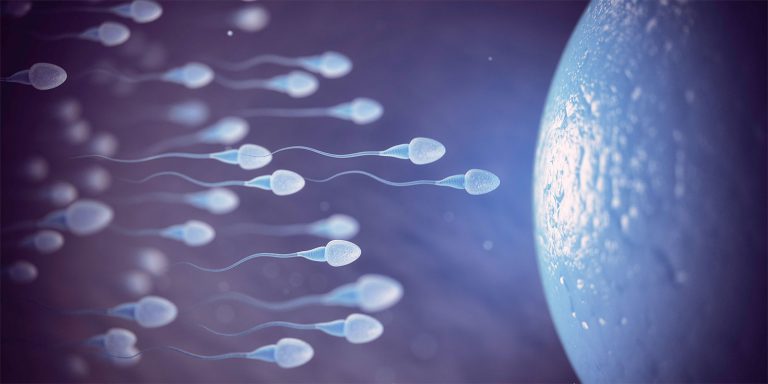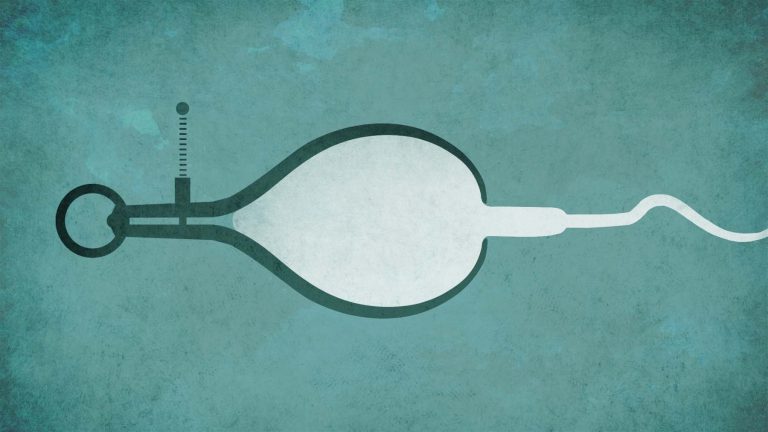DNA Fragmentation is a type of male fertility test that measures the amount of damaged DNA in a sperm sample. DNA is considered damaged when the strands or chains are broken. All men have some amount of damage to their sperm DNA. However, high percentages of damage may indicate greater difficulty achieving and maintaining pregnancy.
In this article, we will cover additional details about DNA Fragmentation, how to understand the results, and how it differs from other fertility tests.
Testing for Sperm Quality
For decades, male fertility testing has relied on a basic semen analysis, which examines sperm concentration, morphology and motility. Still, around 30% of the 5 million men in the US who are facing infertility still do not know why they are infertile. The semen analysis assesses baseline criteria but doesn’t provide a full or predictive assessment of male fertility. More recently, there is a growing recognition of the need for more comprehensive sperm quality testing.
Sperm DNA Fragmentation
Sperm are very small, yet they carry massive amounts of genetic information to the egg. With so much DNA getting packed into a tiny sperm cell, not everything arrives intact as intended. So, the DNA Fragmentation test evaluates the percentage of breaks present in sperm DNA.
Research has looked at how the amount of damage observed in sperm DNA can serve as a marker for male infertility. While our understanding of sperm DNA damage has grown, the exact cause remains unknown. One important observation is that the amount of sperm damage detected does not always correlate with results from a semen analysis. In other words, you can have a normal sperm count, motility, and morphology, and still have large amounts of sperm DNA damage.
Interestingly, the egg has some capacity to repair damaged sperm DNA upon fertilization. However, scientists believe there may be a threshold of DNA damage beyond the repair capacity of eggs.
Sperm Chromatin Structure Analysis (SCSA) Testing
Many tests have been developed to measure sperm DNA damage. However, they all use slightly different procedures and result in different standards of measurement. The SCSA test is the most widely used method, which involves treating sperm with a chemical dye. Broken sperm DNA turns red, normal sperm DNA turns green.
Afterwards, the sample is run through a computerized machine with a special software which reads about 5,000 sperm cells. It then categorizes the ratio of green-to-red sperm cells to figure out the DNA Fragmentation Index (DFI). It’s possible SCSA testing can detect damage in 20% of couples that have previously had no explanation for infertility.
Understanding DNA Fragmentation Results
It is important to consult with your physician regarding questions you may have about your DNA Fragmentation results. However, on the SCSA report you will likely see a key with 4 values to help you understand your results:
a.) Excellent to Good (less than or equal to 15% DFI)
b.) Good to Fair (greater than 15% to less than 25% DFI)
c.) Fair to Poor (greater than or equal to 25% to less than 50% DFI)
d.) Very Poor (greater than or equal to 50% DFI)
A patient with a DFI of 8.2% would fall into the “excellent to good” category. Based on this result, 8.2% of their sperm cells contain DNA damage.
Clinical Utility of DNA Fragmentation
The 2020 ASRM/AUA Guideline states that DNA Fragmentation is not recommended in the initial evaluation of the infertile couple. Rather, it is recommended for couples experiencing recurrent pregnancy loss (RPL). RPL is defined as two or more miscarriages.
However, it is important to note that there is conflicting data about the role of DFI in pregnancy outcomes. The SCSA test recommends that patients with a % DFI above 25% should skip IUI and go straight to IVF/ICSI for greatest success. In fact, at least one study found that patients who have DFI greater than or equal to 29% have a significantly improved pregnancy outcomes when they opted for fertility intervention (e.g. TESE/TESA, PICSI, IMSI) compared to no intervention.
On the other hand, some research suggests there is little difference in IVF pregnancy rates between sperm with normal and abnormal DNA Fragmentation.
Although it is largely accepted that infertility and sperm DNA Fragmentation are linked, this test is not yet a standard tool in fertility clinics. While high percentages of DNA Fragmentation can be a good indicator of problems on the male side, we can’t use this test to accurately predict IVF success.
DNA Fragmentation vs. Sperm Quality Test
DNA Fragmentation identifies chromosomal breaks and is recommended later in the fertility journey in cases of recurrent pregnancy loss. SpermQT (Sperm Quality Test) is a test that examines abnormalities in sperm gene function and is recommended in the initial stage of the fertility journey.
Where DNA Fragmentation shows a break in the DNA chain, SpermQT shows genes that are disrupted due to lifestyle and environmental factors. Factors can include stress, toxins, alcohol consumption, smoking, and more. SpermQT results show three levels of sperm quality, ranked as Excellent, Normal, or Poor. Each result is correlated with pregnancy outcomes when trying IUI, and therefore can also offer actionable guidance for physicians and couples.
Although there is conflicting data about how DNA Fragmentation impacts fertility outcomes, studies show that the factors uncovered by SpermQT can be overcome by IVF with ICSI.
Understanding Sperm Health
When trying to have a baby, it’s important to take a holistic approach to fertility care. Both partners need to have as much information as possible about their reproductive health in order to effectively plan ahead. By utilizing tests like DNA Fragmentation and SpermQT, you can learn so much about your unique biology and take control of your path to pregnancy.







